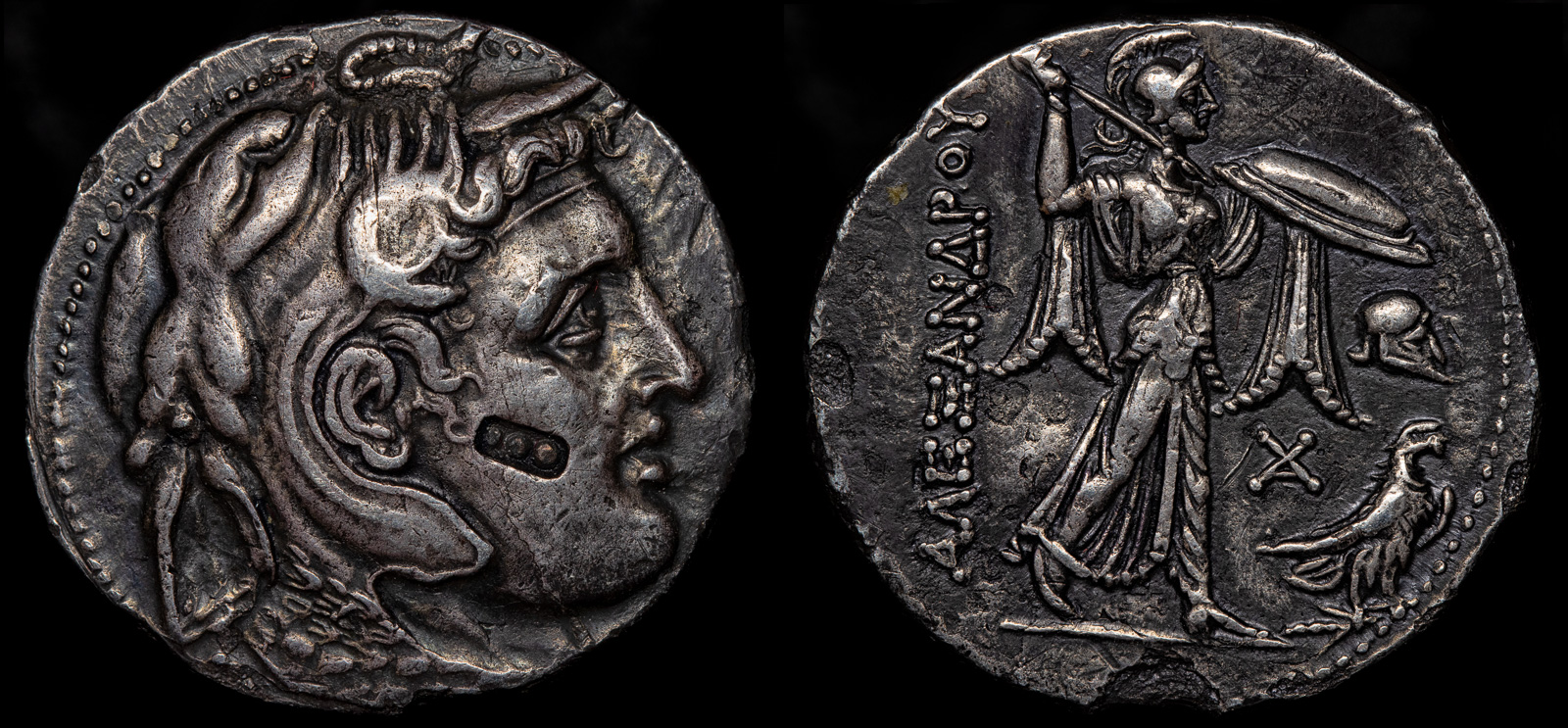
311-305 BCE
Alexandria
27.5 mm 14.6g 1h
Avers : Buste cornu et diadémé d’Alexandre le Grand sous les traits de Zeus-Ammon à droite, coiffé de la dépouille d’éléphant avec l’égide.
Revers : Athéna Promachos ou Alkidemos marchant à droite, brandissant une javeline de la main droite et tenant un bouclier de la gauche ; dans le champ à gauche, un casque corinthien, un monogramme et un aigle sur un foudre tourné à droite.
Sv.162 (37 ex) – Cop.29 – GC.7750 var. – BMC.- – MP.6
Ex Robert J. Myers Auction 12, lot 291 (December 4, 1975)
Alexander the Great founded many cities with his own name (and reputadly two named for his horse), but none ever exceeded Alexandria in Egypt for their grandeur.
One of the world’s first massively planned cities, Alexandria was laid out in a then novel grid plan that was architected by Dinokrates of Rhodes. The same architect also designed the second Temple of Artemis in Ephesos, which was one of the seven ancient wonders of the world. Another of those wonders, the Pharos, would eventually be built next to Alexandria.
When Ptolemy took over Egypt, he moved its capital to Alexandria and it was then the city really began to flourish. Although it was far from being planned that way, Alexander the Great’s body was eventually moved to Alexandria, where notable figures in history such as Julius Caesar later visited it.
During the reign of Ptolemy II, the city became among the leaders of the world. The great library was built there, long considered the greatest center of learning the world has ever known. He also finished the Pharos, a lighthouse named for the promontory on which it stood. The name ‘pharos’ has since become the word for lighthouse in numerous languages.
During the Roman Empire, Alexandria was second only to Rome in importance. During the time of the great Egyptian Pharaohs, not much was built in the area of Alexandria. It was instead a port for foreign traders, who the Egyptians wished to keep separate from themselves.
Strabo, who described most cities in a single sentence or a fragment, spent some time describing Alexandria and the area around it, and he must have spent some time there. He describes its exports as “greater than its imports” and marvels at its wealth.